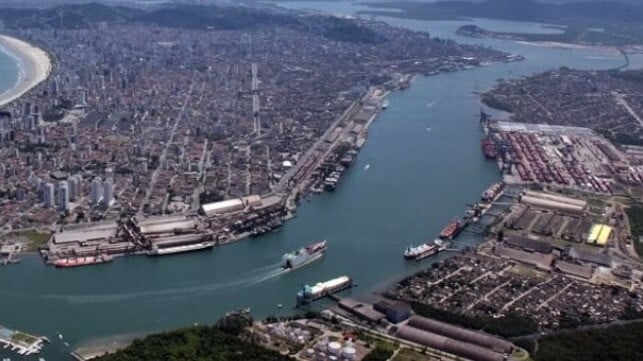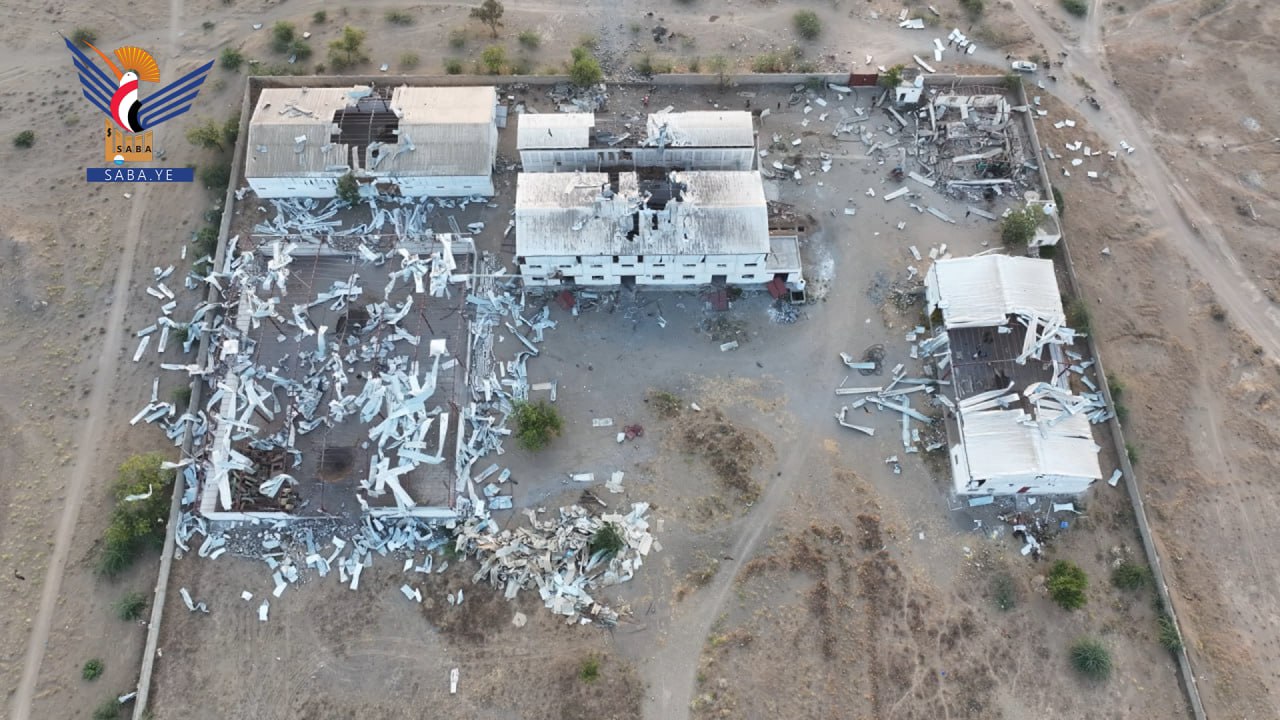Life inside Iraq's 'Forbidden Zone' controlled by Turkey
Nestled in the mountains of Iraqi Kurdistan sits the picturesque village of Sergele.
For generations villagers have made a living growing pomegranates, almonds and peaches and foraging in the surrounding forests for wild fruits and spices.
But Sergele, located 16km (10 miles) from the border with Turkey, has become increasingly surrounded by Turkish military bases, which are dotted across the slopes.
One, perched halfway up the western ridge, looms over the village, while another in the east is under construction.
At least seven have been built here over the past two years, including one by a small dam that regulates Sergele's water supply, rendering it off limits to villagers.
"This is 100% a form of occupation of Kurdish [Iraqi Kurdistan] lands," says farmer Sherwan Sherwan Sergeli, 50, who has lost access to some of his land.
"The Turks ruined it."
Sergele is now in danger of being dragged into what's known locally as the "Forbidden Zone" - a large strip of land in northern Iraq affected by Turkey's war with the Kurdish militant group the PKK, which launched an insurgency in southern Turkey in 1984.
The Forbidden Zone spans almost the entire length of the Iraqi border with Turkey and is up to 40km (25 miles) deep in places.
Community Peacemaker Teams, a human rights group based in Iraqi Kurdistan, says that hundreds of civilians have been killed by drone and air strikes in and around the Forbidden Zone. According to a 2020 Kurdistan parliamentary report, thousands have been forced off their land and whole villages have been emptied out by the conflict.
Sergele is now effectively on the front line of Turkey's war with the PKK.
When the BBC World Service Eye Investigations team visited the area, Turkish aircraft pummelled the mountains surrounding the village to root out PKK militants, who have long operated from caves and tunnels in northern Iraq.
Much of the land around Sergele had been burned by shelling.
"The more bases they put up, the worse it gets for us," says Sherwan.
Turkey has been rapidly growing its military presence in the Forbidden Zone in recent years, but until now the scale of this expansion was not publicly known.
Using satellite imagery assessed by experts and corroborated with on-the-ground reporting and open-source content, the BBC found that as of December 2024, the Turkish military had built at least 136 fixed military installations across northern Iraq.
Through its vast network of military bases, Turkey now holds de-facto control of more than 2,000 sq km (772 square miles) of Iraqi land, the BBC's analysis found.
Satellite images further reveal that the Turkish military has built at least 660km (410 miles) of roads connecting its facilities. These supply routes have resulted in deforestation and left a lasting imprint on the region's mountains.
While a few of the bases date back to the 1990s, 89% have been constructed since 2018, after which Turkey began significantly expanding its military presence in Iraqi Kurdistan.
The Turkish government didn't respond to the BBC's requests for interviews, but has maintained that its military bases are necessary to push back the PKK, which is designated a terrorist organisation by Ankara and a number of Western nations, including the UK.
The sub-district capital of Kani Masi, which is only 4km (2.5 miles) from the Iraqi-Turkish border and parts of which are within the Forbidden Zone, may offer a glimpse into Sergele's future.
Once famous for its apple production, few residents remain here now.
Farmer Salam Saeed, whose land is in the shadow of a large Turkish base, hasn't been able to cultivate his vineyard for the past three years.
"The moment you get here, you will have a drone hover over you," he tells the BBC.
"They will shoot you if you stay."
The Turkish military first set up here in the 1990s and has been consolidating its presence since.
Its main military base, featuring concrete blast walls, watch and communication towers and space for armoured personnel carriers to move inside, is much more developed than the smaller outposts around Sergele.
Salam, like some other locals, believes Turkey ultimately wants to claim the territory as its own.
"All they want is for us to leave these areas," he adds.
Little leverage
Near Kani Masi, the BBC saw first-hand how Turkish forces have effectively pushed back the Iraqi border guard, which is responsible for protecting Iraq's international boundaries.
At several locations, the border guards were manning positions well inside Iraqi territory, directly opposite Turkish troops, unable to go right up to the border and potentially risk a clash.
"The posts that you see are Turkish posts," says General Farhad Mahmoud, pointing to a ridge just across a valley, about 10km (6 miles) inside Iraqi territory.
But "we cannot reach the border to know the number of posts", he adds.
Turkey's military expansion in Iraqi Kurdistan - fuelled by its rise as a drone power and growing defence budget - is seen as part of a broader foreign policy shift towards greater interventionism in the region.
Similar to its operations in Iraq, Turkey has also sought to establish a buffer zone along its border with Syria to contain Syrian armed groups allied with the PKK.
In public, Iraq's government has condemned Turkey's military presence in the country. But behind closed doors it has accommodated some of Ankara's demands.
In 2024, the two sides signed a memorandum of understanding to jointly fight the PKK.
But the document, obtained by the BBC, did not place any limitations on Turkish troops in Iraq.
Iraq depends on Turkey for trade, investment and water security, while its fractured internal politics have further undermined the government's ability to take a strong stance.
Iraq's national government did not respond to the BBC requests for comment.
Meanwhile, the rulers of the semi-autonomous region of Iraqi Kurdistan have a close relationship with Ankara based on mutual interests and have often downplayed the civilian harm due to Turkey's military action.
The Kurdistan Democratic Party (KDP), an arch enemy of the PKK, dominates the Kurdistan Regional Government (KRG) and has officially been in charge since 2005, when Iraq's constitution granted the region its semi-autonomous status.
The KDP's close ties with Turkey have contributed to the region's economic success and have strengthened its position, both against its regional political rivals and with the Iraqi government in Baghdad, with which it tussles for greater autonomy.
Hoshyar Zebari, a senior member of the KDP's politburo, sought to blame the PKK for Turkey's presence in Iraqi Kurdistan.
"They [the Turkish military] are not harming our people," he told the BBC.
"They are not detaining them. They are not interfering in them going about their business. Their focus, their sole goal is the PKK."
The conflict shows no signs of ending, despite the PKK's long-jailed leader Abdulla Ocalan calling in February for his fighters to lay down arms and disband.
Turkey has continued to shell targets across Iraqi Kurdistan, while the PKK claimed responsibility for downing a Turkish drone last month.
And while violent incidents in Turkey have declined since 2016, according to a tally by the NGO Crisis Group, those in Iraq have spiked, with civilians living on the border region facing growing risk of death and displacement.
One of those killed was 24-year-old Alan Ismail, a stage-four cancer patient hit by an air strike in August 2023 while on a trip to the mountains with his cousin, Hashem Shaker.
The Turkish military has denied carrying out a strike that day, but a police report seen by the BBC attributes the incident to a Turkish drone.
When Hashem filed a complaint in a local court about the attack he was detained by Kurdish security forces and held for eight months on suspicion of supporting the PKK - an accusation he and his family deny.
"It has destroyed us. It's like killing the whole family," says Ismail Chichu, Alan's father.
"They [the Turks] have no rights to kill people in their own country on their own land."
Turkey's Defence Ministry did not respond to the BBC's requests for comment. It has previously told the media that the Turkish armed forces follow international law, and that in the planning and execution of their operations they only target terrorists, while taking care to prevent harm to civilians.
The BBC has seen documents suggesting Kurdish authorities may have acted to help Turkey evade accountability for civilian casualties.
Confidential papers seen by the BBC show a Kurdish court closed the investigation into Alan's killing, saying the perpetrator was unknown.
And his death certificate - issued by Kurdish authorities and seen by the BBC - says he died because of "explosive fragments".
Failing to mention when victims of air strikes have died as a result of violence, rather than an accident, makes it difficult for families to seek justice and compensation, to which they're entitled under both Iraqi and Kurdish law.
"In most of the death certificates, they only wrote 'infijar', which means explosion," says Kamaran Othman from Community Peacemaker Teams.
"It can be anything exploding.
"I think the Kurdish Regional Government doesn't want to make Turkey responsible for what they are doing here."
The KRG said it acknowledged the "tragic loss of civilians resulting from military confrontation between the PKK and Turkish army in the region".
It added that "a number of casualties" had been documented as "civilian martyrs", meaning they have been unjustly killed and entitling them to compensation.
Almost two years after Alan was killed, his family is still waiting, if not for compensation, at least for acknowledgement from the KRG.
"They could at least send their condolences - we don't need their compensation," says Ismail.
"When something is gone, it's gone forever."
https://www.bbc.com/news/articles/c985lw7lywlo











